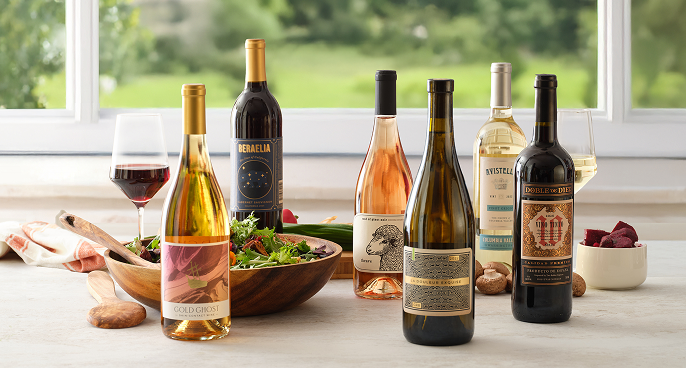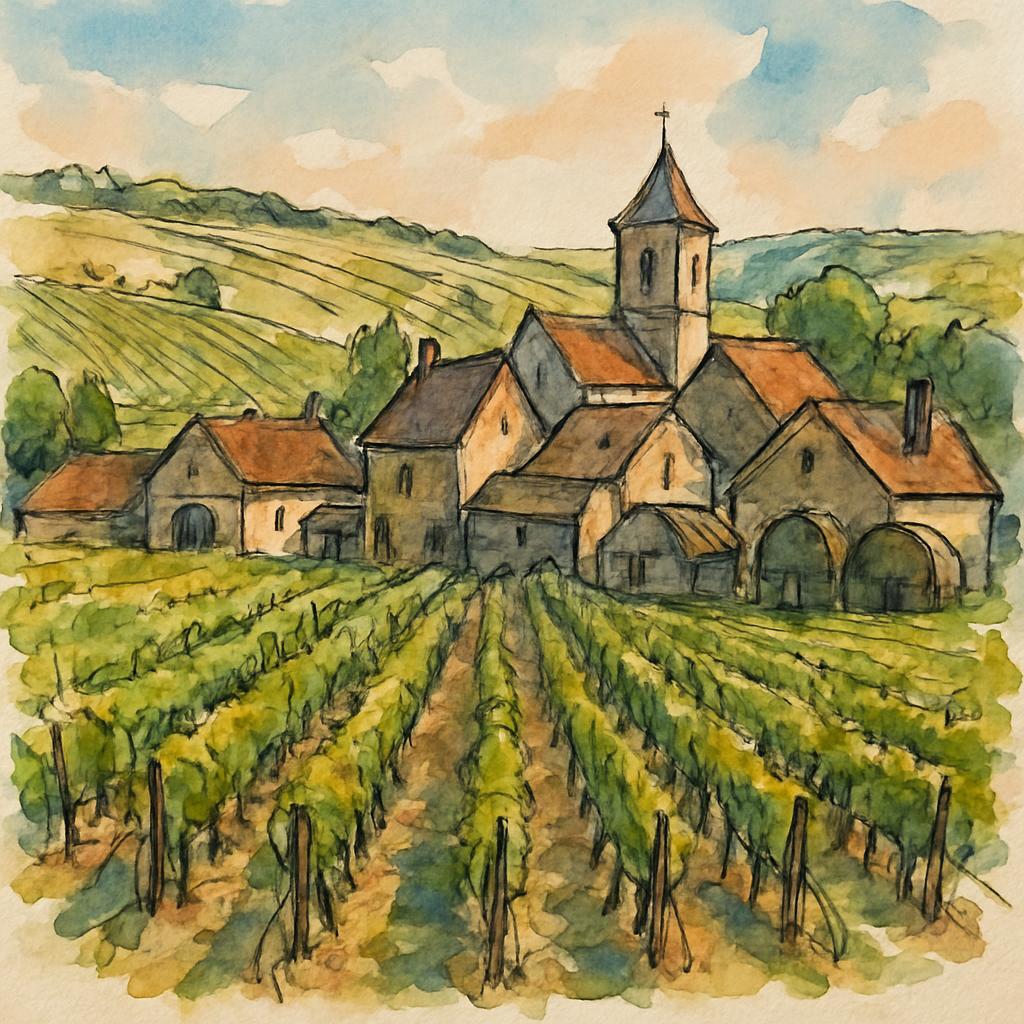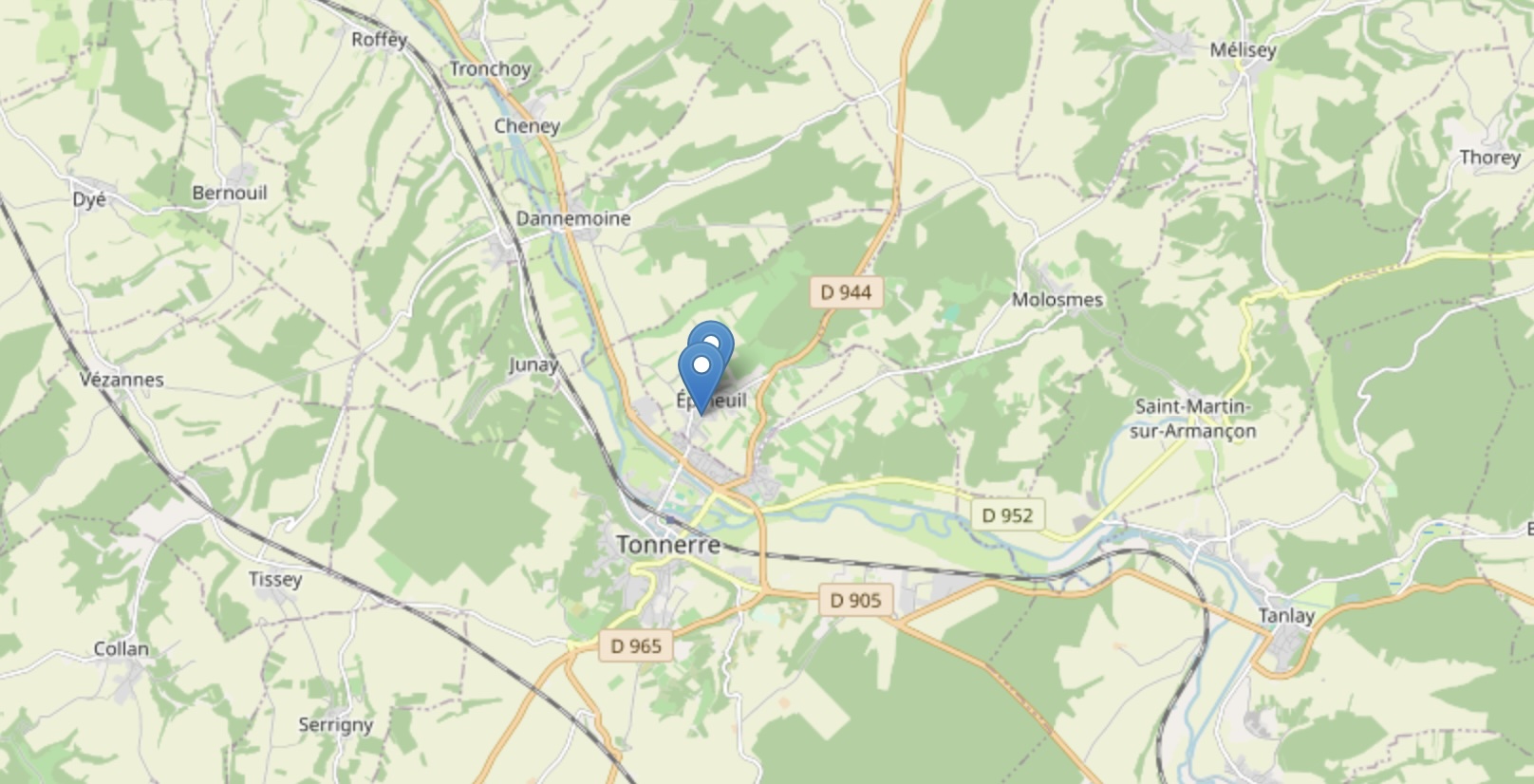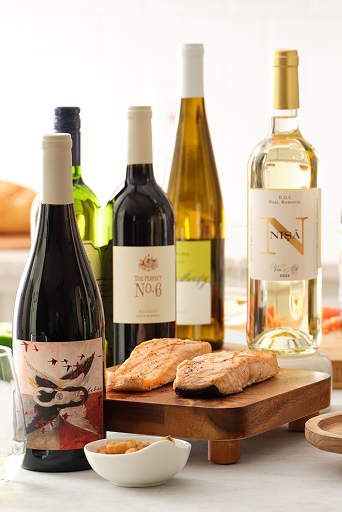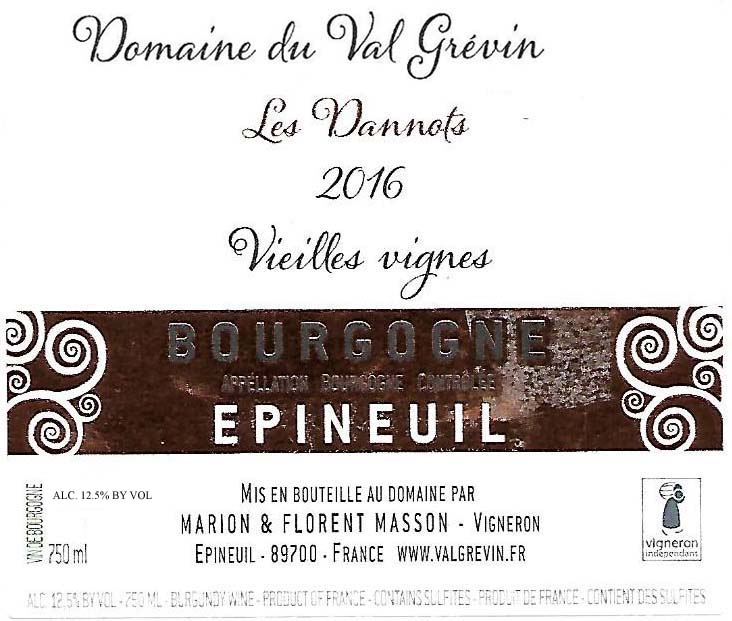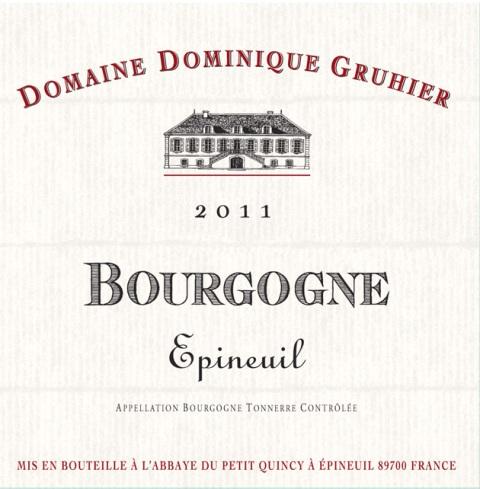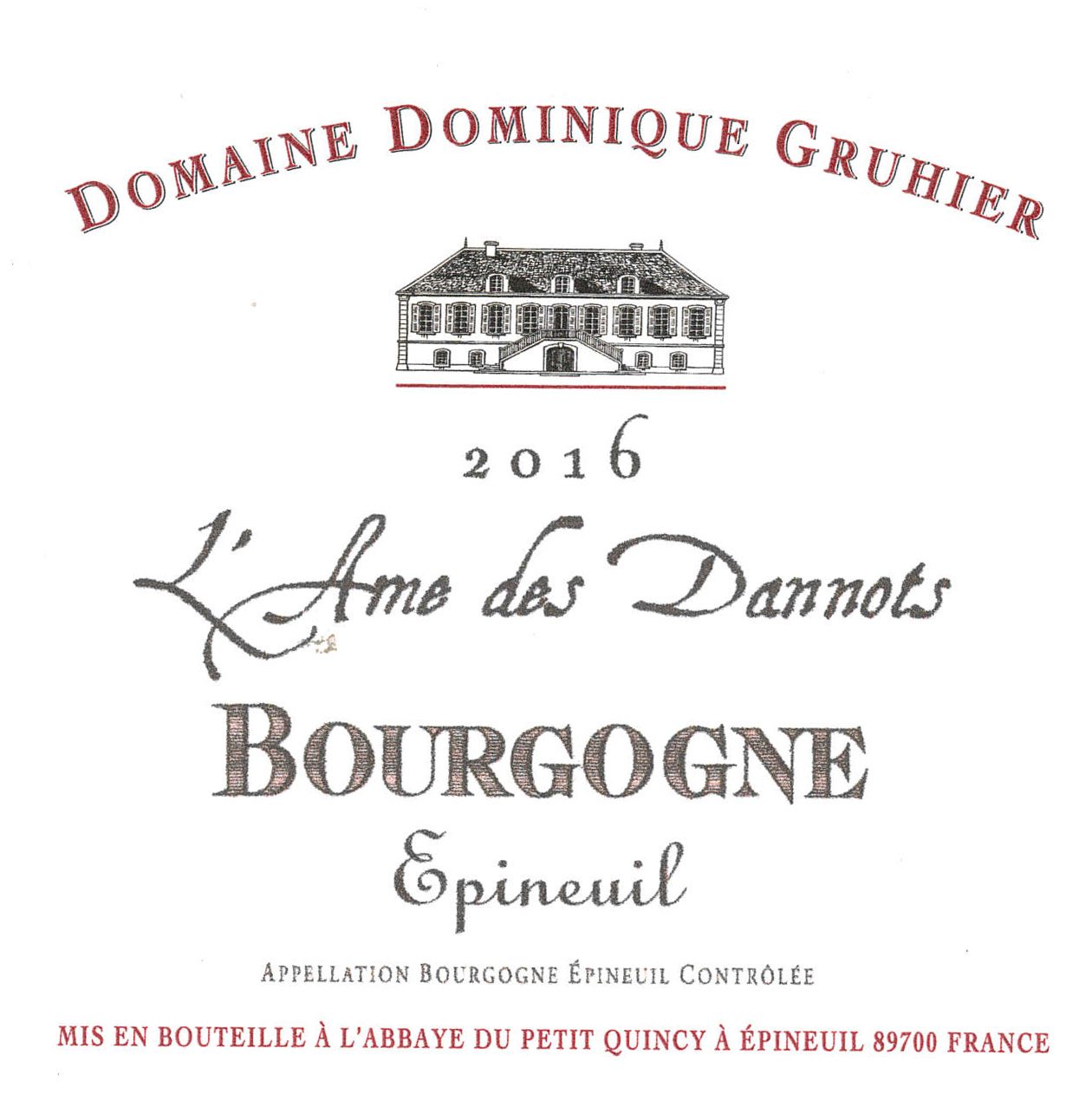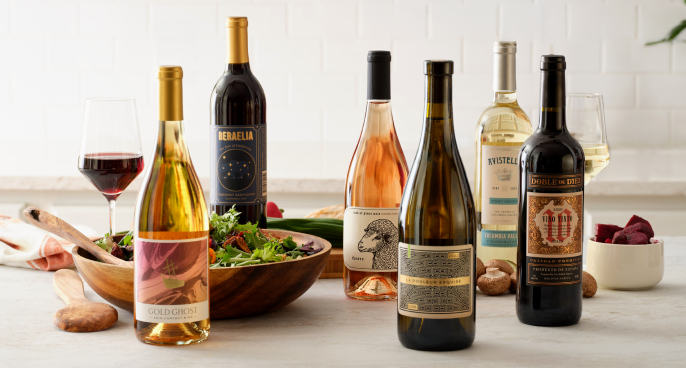Terroir of Bourgogne Épineuil
Épineuil's vineyards are perched on steep hillsides along the Armançon valley, with a south to southeast exposure. This setup provides ample sunlight and wind protection, crucial for the slow, even ripening of Pinot Noir grapes. Vineyards climb from 140 to 265 meters, fostering grapes with balanced acidity.
The soil is marked by Kimmeridgian marl and Portlandian limestone, which is rocky and well-drained. These conditions encourage deep vine roots and moderate growth, resulting in wines with bright fruit flavors and a distinct mineral quality, often hinting at flint or saltiness.
The semi-continental climate features chilly winters and warm summers, with unpredictable springs. The vineyard slopes and valley breezes help prevent excess moisture and disease. This environment allows Pinot Noir to mature perfectly, retaining its fresh and elegant character, integral to Épineuil's renowned red and rosé wines.
Notable Wineries in Bourgogne Épineuil
In the picturesque Bourgogne Épineuil region, notable wineries embrace traditional and innovative winemaking techniques, showcasing the unique terroir of this northern Burgundy gem. Among them:
-
Domaine Dominique Gruhier: This family-owned estate in Épineuil champions organic farming, producing classic Pinot Noir with pure red fruit, balanced acidity, and smooth tannins.
-
Tonnerre Cooperative: Known for crafting approachable Bourgogne Épineuil wines, their offerings are light-bodied with bright fruit flavors, perfect for everyday enjoyment.
-
Small Family-Owned Domaines: Scattered throughout the region, these artisanal producers use minimal intervention techniques, offering intimate, by-appointment visits for wine enthusiasts.
Sustainable Winemaking in Bourgogne Épineuil
The Bourgogne Épineuil region, with its quaint vineyards, is a beacon of sustainable viticulture. Growers here embrace eco-friendly practices, reflecting a deep respect for their storied land. Ground cover is widely used to prevent erosion and foster biodiversity, while careful yield management ensures the vines remain robust and healthy.
In the winery, minimal intervention is key. Gentle extraction methods, moderate use of sulfur, and a light touch with oak allow the true character of the Pinot Noir to shine. The regional sustainability charter guides these efforts, promoting careful pesticide use, energy conservation, and water-saving techniques.
Organic and biodynamic practices are gaining ground in the Yonne region, with Épineuil's small, dedicated teams opting for low-impact methods. This commitment keeps the soils vibrant and the vineyards pristine, ensuring the wines continue to express their unique terroir.
Wine Tourism in Bourgogne Épineuil
In Bourgogne Épineuil, wine tourism offers a serene experience in intimate, working cellars perfect for those seeking a personal touch. Visitors can schedule appointments with local producers like Domaine Dominique Gruhier for a unique tasting session. Instead of bustling centers, expect relaxed conversations amidst barrels and vines.
Épineuil is often part of a broader Burgundy tour, seamlessly blending with journeys to Chablis or Auxerre. The scenic Armançon valley invites leisurely drives and bike rides, with Tonnerre providing dining and lodging options.
While Épineuil lacks a major festival, the Auxerrois area hosts numerous wine events. The Route des Vins de l’Auxerrois offers stunning vineyard views, ideal for a tranquil day out.
Visitors are encouraged to wander through vineyards, savor local cheeses, and enjoy a bottle of Pinot Noir amidst rolling hills, embracing the area's commitment to sustainable and organic practices.

